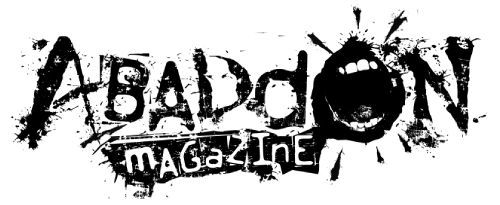Publisher: Self released
Year: 2022
At first glance, one could say this book has nothing to do with music and at Abaddon Magazine we are all about music. Indirectly though, this, his eighth, collection of Mr. Popović’s poetry has a lot to do with it. At least through its author who is a long time rock journalist and even longer a rock enthusiast.
Also, one must take into consideration that his words were used more than once as lyrics for various rock, metal, hip-hop, reggae and punk bands. So much so that he managed to get two compilation CDs out of it. Well, technically it’s three CDs, since the second release was double. Plus, there are a couple of singles published. Come to think of it, many band members, even those who deal with lyrics in their own bands, don’t get that many songs written around their lyrics.
The connection with the world of music being made obvious, how about the world of poetry? I’ll start you off with being brutally well-meaning (word game with the title of Mr. Popović’s second book). Honestly, I’m far from a fan or a connoisseur of poetry. I took it upon myself to write a review at a specific request from the author, even though I told him exactly the same.
However, it’s not like I never read a line of poetry and I can certainly write my impressions from reading this particular book.
Among these impressions, the first one is definitely the cover artwork. If I’m not to judge a book by its cover, I’m certainly going to judge the cover. “And they saw that it was good”! Actually, more than good! It’s marvellous! It speaks both of artistic and social aspects of being a poet. I have no idea if it was the joint effort between the ideas of the Mr. Popović and the academic painter Mr. Jakša Vlahović or the creation of the artist himself, it remains among the finest book covers I’ve seen in quite a while. On top of that, Mr. Vlahović added a few illustrations within the book itself, so that it is graphically enhanced as much as it is needed to depict the words it lays on the readers’ minds.
Still, the paintings would be hanging in some gallery (and deservingly so) without that which they adorn. And I’m here to try and explain just that.
Off the spot, this has got to be the weirdest book I’ve held in my hands. The poetry ends at page sixty nine. And then there’s exactly eighty three pages of advertisement! I was shocked, to say the least! I mean, I have no idea of the state of affairs in poetry today, but it is beyond my comprehension that it takes so many sponsorships just to print a single book. Sure, the run of three thousand copies didn’t help the cause, but still… It’s puzzling and if it really does take so much… God help us and the artists working to lift our souls above ground.
So, what to do when we have the art in front of us? When it’s already there? Submit it for a review to a guy likely to screw things up. But I’ll try anyway.
Mr. Popović aims at a couple of directions, “genre-wise”. And at least two when it comes to his rhetorical tools.
Most notably, the majority of his work is drenched in heavy feelings of melancholy. His words are dense, almost claustrophobic in their inner suppression. They do, of course, come from within but I get the feeling that these poems do not let these feelings go. In other words, the emotions show up, yet remain bottled up inside. As far as I know, it’s not too common among poets who usually vent out with their words.
Now, though the melancholy enwraps almost every aspect of this book, the subjects of Mr. Popović’s poems differ a lot, showing the author’s capability of seeing “the big picture”. As if nothing escapes his eyes and the reception of his nerves, Mr. Popović shows affection towards his colleagues and friends just as much as he briskly curses at the artificial powers taken upon by mankind, all the while discussing with himself and the reader the great secrets of life. Not in the same poem, naturally, but the author’s wide array of perception fascinates to a point where it lead this reviewer to seek a separation into chapters. To a degree the book was composed of varying chapters, thought they are not clearly marked.
At the same book you can find poems about life’s joys and tragedies; tales of friendship, camaraderie and utter disappointment; Mr. Popović’s sombre views across his shoulders and carefully optimistic glances into uncertain future; dealings with life as well as death; almost mundane struggles with politics and its negative side effects…
Topics are many and viewpoints even more numerous. All for the reader to maintain and adopt as his own. Emotions, on the other hand, are fairly straight-forward. Melancholy, as stated above, dominates. Even in the verses that are striving for exaltation, the feeling mixes with an unclear state of static sadness. That sort of induced thoughts made me a bit uneasy and almost sorry for the author who presents himself as this spectator of happiness who uses this colourful spectrum only to “grayscale it” within his own.
Even when Mr. Popović delves with present realism, social and political issues, his defiance which is to be expected from a thinking human being (let alone an artist) is slightly dimmed by the pessimism he exudes.
Technically speaking, Mr. Popović handles both direct hits at the bull’s-eye and elusive (if light) symbolism, each at its own time, letting the inspiration free-flow at whichever direction. I’m actually inclined to judge the latter as preferable, which is somewhat unexpected of me, seeing how I’m more of a straight-shooter. Yet, reading homages to the author’s lovely colleagues and friends seem to me a bit mundane, in idea as well as execution. It seems like these poems come from pure infatuation, rather than actual need to write and expose his true feelings and thoughts. Whatever the case may be, I find these to be the weakest links of this collection.
With the author’s light flirt with symbolism, we find the key to his creation. He seems to feel a whole lot more comfortable being vague, elusive, hiding his words in the shadows only to have them strike at the right moment.
Mr. Popović is also quite successful when he slides this symbolism into uncommon wordplays. These, then, are very “sharp”, witty and downright clever, all the while hitting their intended goal. Hence, for example, the book’s title, meaning: “I, first person plural”. Simply put, brilliant!
So, when it’s all said and done, you can conclude on your own that I’m not a big fan of Mr. Popović’s light and simplified approach to poetry. However, I am fairly satisfied when he shows the more serious and deeper side of his creation. Still, I maintain that I’m no expert in poetry, nor will I become an avid reader of poetry. Not because of this book in particular. I’ll admit a nice enough time reading “Ja, prvo lice množine” but not much more than that.







